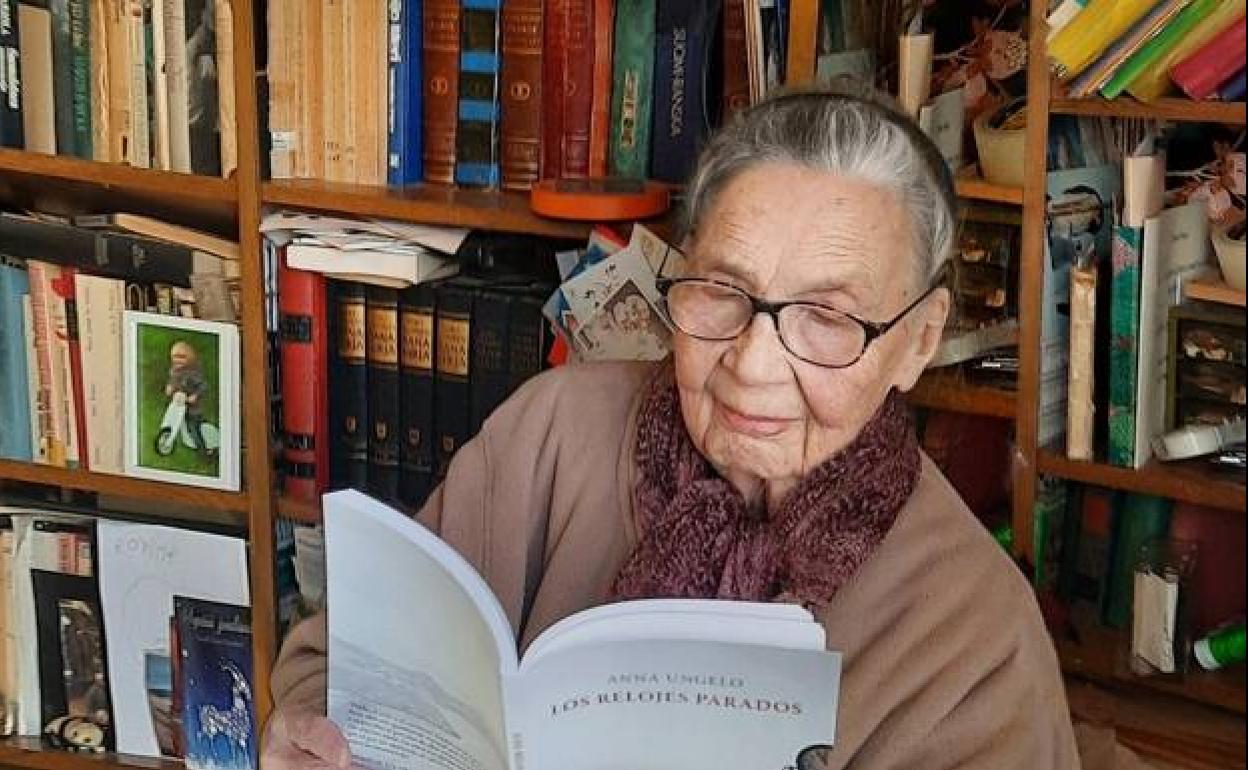A literary journey to 1950s Nerja
The 90-year-old Finnish writer Anna Ungelo is launching the Spanish translation of a novel first published in her country in 1960, inspired by her trips to the town
It has been more than a decade since Anna Ungelo last visited Nerja, but the Finnish author, born in 1932 and resident in Paris, confesses that she prefers to keep the image she has "in my heart" of the town.
It was in 1956 that she arrived in Nerja with her Polish husband, Maurice Zalcman. "We wanted to go more towards the coastal area of Granada and Almería, we stayed by chance," recalls the author of 'Pysähtyneet Kellot', a novel set in the town, which she first published in 1960 in Finnish.
Now, more than six decades later, the work has been translated for the first time into Spanish under the title 'Los relojes parados' (the stopped clocks). The story takes us on a journey to the Nerja of more than six decades ago, when "it was still a small, quiet fishing village, there were no hotels, souvenir shops, supermarkets, hardly any foreigners and only one car; the taxi," Ungelo recalls. "I fell in love immediately," she adds.
The idyll was such that just a few years after their first visit they bought a house in Cantarriján, in the Maro cliffs, where their son Olaf, who works as an agent in the rural tourism sector continues to visit. "I would love to go back, it's the promised land, as my husband used to say," Ungelo says. Her husband was a well-known painter who died in 1983 and in 2017, the Museum of Nerja held an exhibition of his works and photographs of the town.
"He always said that Franco sold him to the Allies for a pig or a sack of wheat," explains Ungelo about the incredible survival story of her late husband, who was imprisoned by the Nazis. "He was imprisoned in Jaca and from there he was sold to the Allies, arriving in Morocco via Malaga, and then liberated in France," she says. "With the money they gave him as compensation we bought the house in Nerja," she reveals.
The only hotel on the Balcón de Europa
On their first trip to the town to retrace the steps that led him to freedom in the Second World War, they rented a room "in the only bar on the Balcón de Europa". They soon made friends with the local families, "who really adopted us as one of their own.” She is still in contact with the families and it was through them that she learned first-hand about the traumas of the then still recent Civil War.
One of these encounters gave the writer the inspiration to write her novel. The stories take place in the imaginary village of Alhama and the names of the people have been changed. "I want people to know what the Nerja of that time was like, I don't want to see the Nerja of today, I prefer the image I keep in my heart", says the author.
The book talks about friendship and love, travelling to forgotten places and a Nerja that no longer exists, "A Nerja that we must remember and the friends who are not forgotten," Ungelo explains, for whom the Nerja of today is no longer the same.
"But somewhere its old heart is still beating, it is detached from time. That is the old Nerja that I show in the book: a small town that I have loved all my life, a town where life was tranquil, floating from one day to the next and where time seemed to disappear," she concludes.

